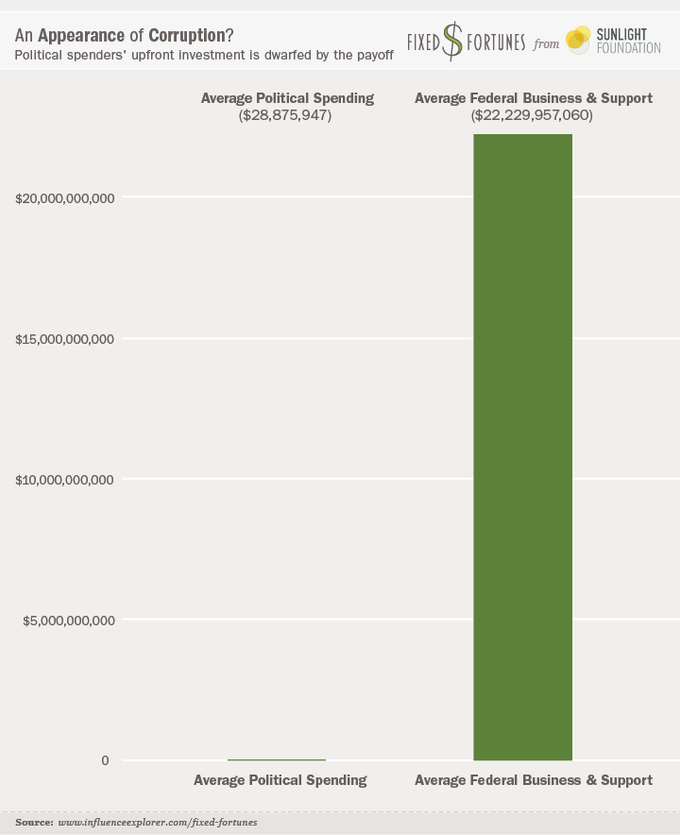The Price Of Access
Mulvaney is a symptom, not the problem.
by Chris Thomas

The New York Times quotes former Congressman and current director of the Consumer Financial Protection Bureau Mick Mulvaney as saying the following, when advising banking industry executives on working with his office:
We had a hierarchy in my office in Congress, if you’re a lobbyist who never gave us money, I didn’t talk to you. If you’re a lobbyist who gave us money, I might talk to you.
Mulvaney added, seemingly as an afterthought, “If you came from back home and sat in my lobby, I talked to you without exception, regardless of the financial contributions.”
This is, unfortunately, just how Congress works. The average successful run for a House of Representatives seat costs $10,400,000. The House is up for reelection every two years so that works out to each and every Member of the the House trying to raise, on average, $14,246 per day. That’s a lot of money and since it’s not coming from publicly financed elections, the only other choice is private donations.
Of course, bribing Senators and Representatives to vote a specific way is illegal and so Members of Congress really only have one thing they can trade for the millions of dollars they need to keep their jobs: access.

To put it bluntly, donors get facetime. That makes their voices louder, their opinions more important, and their wishes more respected in the halls of Congress. That’s why they pay; that’s what they’re buying.
And by every assessment it’s an exceedingly good investment. On average, every dollar spent on political lobbying returns $760 in federal business, regulatory loopholes, tax exemptions, price supports, and other benefits.
Try getting that rate of return on Wall Street.
Mick Mulvaney isn’t saying or suggesting anything even remotely unusual about how Washington works. Far from exploiting the system, he is telling the banking executives exactly how the American political system is designed to operate.
What’s more, the people in power — both Democrat and Republican — have one thing in common: they’ve been successful in that system. Expecting them to change it on their own is folly. Every Member of Congress is where they are today precisely because they can raise $14,246 per day. Eliminating that barrier to entry will just make their jobs less secure.
If that upsets you — if you’d like to see that change — you need to be louder than the money. You need to write Congress; you need to volunteer with campaigns; you need to phone-bank, drive people to the polls, and — yes — donate to campaigns.
Because until Citizens United is overturned and American elections are funded from public coffers, your members of Congress still need to raise their $14,246 dollars per day.
They can get that from a lobbyist, or they can get it from you and everyone else they represent. If everyone gave, just $7 a year would buy your Representative back. It’s a low price for a Republic.
Tell Congress What You Think
Election season is already in full swing so now is the time to tell your Senators and Representatives what you think about campaign finance reform. You can tell your Members of Congress about this or any other issue by texting RESIST to 50409. Or, if SMS isn’t your style, you can contact your government by talking to Resistbot on Facebook Messenger, Telegram, or Twitter.
What Resistbotters are writing
Check out these messages from the resistance!
Support the ’bot!
Upgrade to premium for AI-writing, daily front pages, a custom keyword, and tons of features for members only. Or buy one-time coins to upgrade your deliveries to fax or postal mail, or to promote campaigns you care about!
Upgrade to PremiumBuy Coins